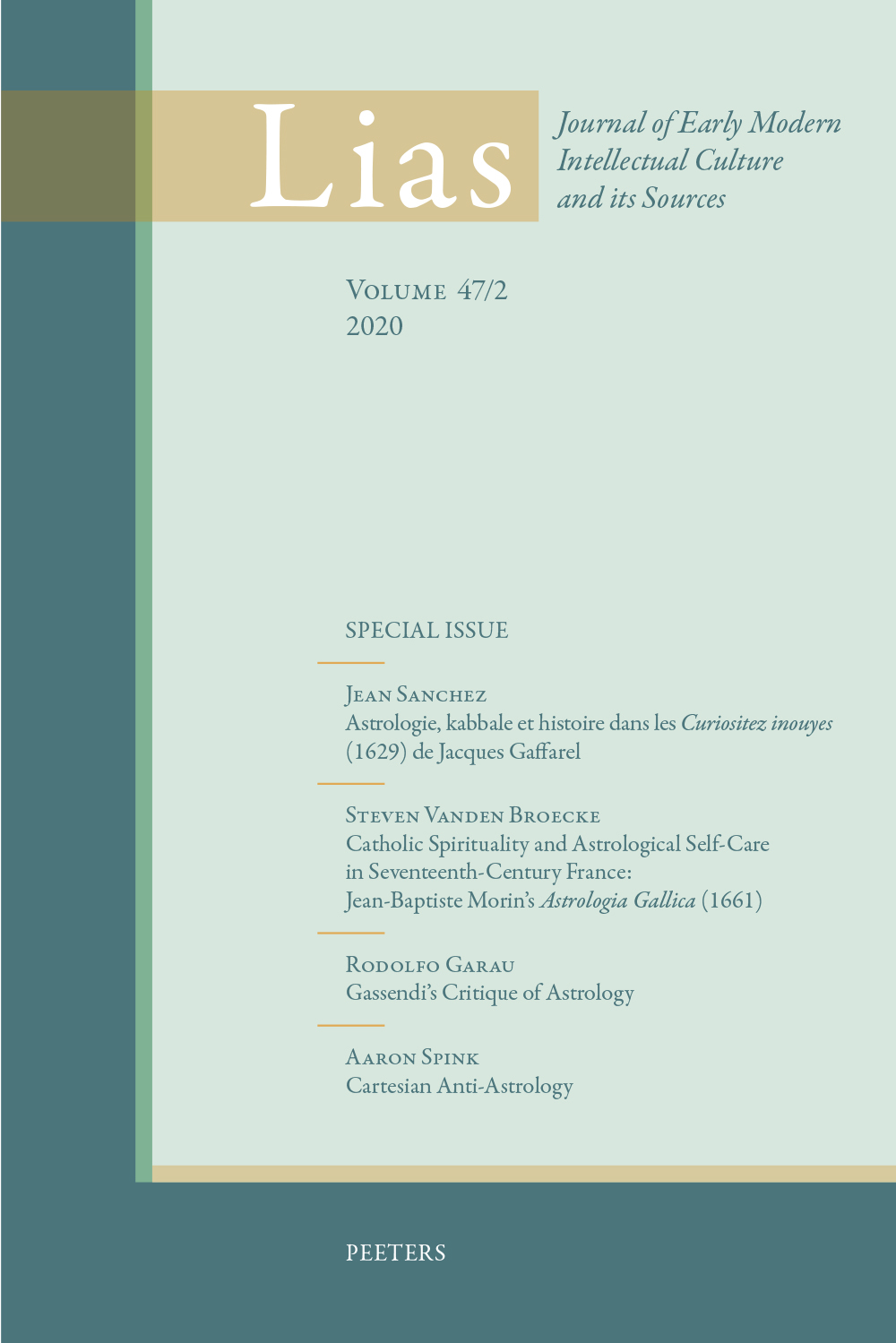 previous article in this issue previous article in this issue | next article in this issue  |

Preview first page |
Document Details : Title: Vilescunt in dies bonae literae Subtitle: Urian Oakes and the Harvard College Crisis of the 1670s Author(s): DELWICHE, Theodore R. Journal: Lias Volume: 46 Issue: 1 Date: 2019 Pages: 29-58 DOI: 10.2143/LIAS.46.1.3286810 Abstract : Modelled after wider early modern European schools, the first academic institutions in seventeenth-century New England largely focused on Latin and Greek learning. American historians have often celebrated the intellectual triumph of Rome and Athens in the new world, failing to consider a contemporary culture of critique and the overlooked struggle for schools to establish themselves. Focusing primarily on four untranslated Latin commencement addresses of Harvard President Urian Oakes (1631-1681), I argue that the early college had to respond to criticisms about the practicality and piety of its classical education. In addressing this challenge, Oakes employed a combination of shame and blame, appeals to elders and attacks on enemies, and, perhaps most importantly, the construction of an institutional identity that placed the success of Harvard bound up with that of the church and the very republic itself. From the early decades of America’s first academic institutions, education had been enveloped in crisis, framed as something to be fought over and about. |
|


